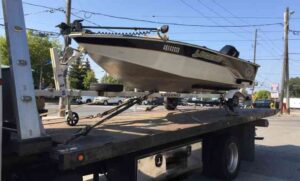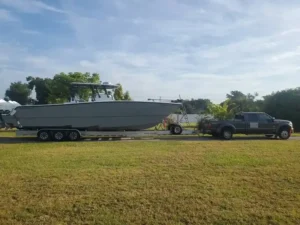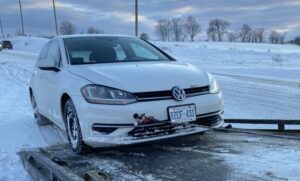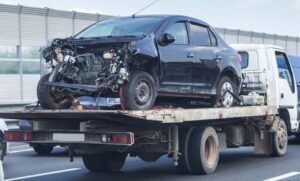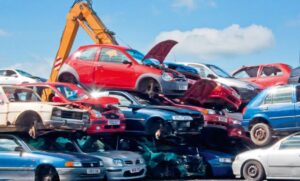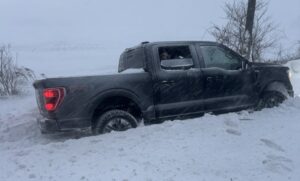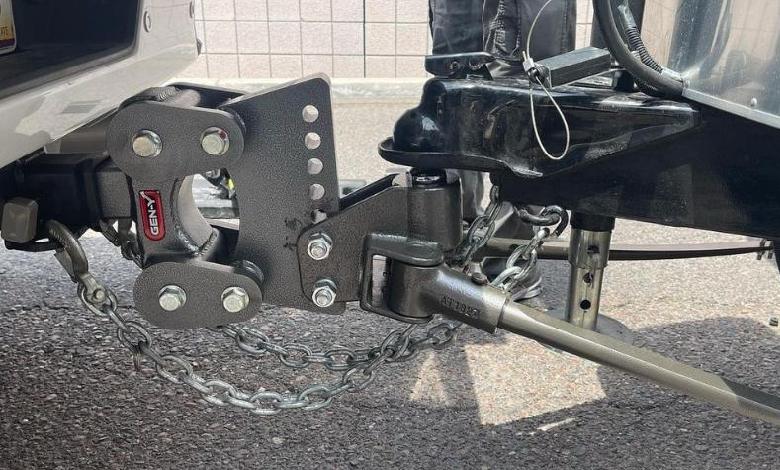Towing a trailer—whether it’s an RV, a commercial equipment hauler, a boat, or a utility trailer—adds a layer of complexity to driving. The connection point, the trailer hitch, is the single most critical component ensuring the safe transport of your valuable cargo. When things go wrong here, the results can range from a minor inconvenience to a major, life-threatening accident.
For residents, businesses, and travelers in Aurora and across Ontario, understanding common trailer hitch problems is the first step in prevention. Knowing who to trust when a problem occurs is the second. At Pars Towing, we specialize in the heavy-duty and roadside assistance required when hitch failures and towing issues strike, providing expert, rapid-response services to get you and your rig safely back on the road.1
- Learn More >>>>Trailer Light Problem and solution
The Anatomy of a Hitch: Why Problems Occur
A modern hitch system is more than just a ball and coupler. It’s a complex assembly of components designed to handle immense forces of pulling, braking, and turning. Trailer hitch problems often stem from four main areas: the receiver, the ball mount, the coupler, and the wiring harness.
1. Structural and Connection Issues
The physical connection between the tow vehicle and the trailer is where most structural issues manifest.
- The Rusty Receiver: Over time, road salt (especially common on Ontario roads), moisture, and lack of maintenance can lead to heavy rust build-up inside the hitch receiver.2 This can make it nearly impossible to insert or remove the ball mount. A stuck ball mount isn’t just frustrating—it can compromise the hitch’s integrity.
- Worn or Damaged Coupler: The trailer’s coupler—the part that locks onto the ball—is a high-wear component. Problems include:
- Coupler Lock Failure: If the latch or locking mechanism is bent or seized, the coupler cannot properly engage or disengage the hitch ball.
- Internal Wear: Excessive rattling or ‘chucking’ when towing indicates the coupler may be worn out, leading to dangerous slack and increased stress on the hitch.3
- Ball Mount and Hitch Ball Deficiencies: Using the wrong size ball or a ball mount with an insufficient weight rating for your trailer is a massive safety hazard.4 A too-small ball can pop out of the coupler, leading to immediate separation. A low-rated ball mount can snap under a heavy load.
2. Weight Distribution and Sway Control Failures
Heavy trailers, particularly RVs and large enclosed cargo trailers, require specialized equipment to tow safely.5 Neglecting or improperly installing this equipment is a common cause of serious trailer hitch problems.6
- Improper Weight Distribution (WD) Setup: Weight distribution systems use spring bars to distribute the trailer’s tongue weight evenly between the tow vehicle’s front axle and the trailer’s axles. If the bars are too tight, too loose, or the system is rated incorrectly, it can lead to:
- Trailer Sag: Too much tongue weight on the rear of the tow vehicle, lifting the front wheels and negatively impacting steering and braking.7
- Over-Steering: Reduced contact with the road on the front tires, leading to a loss of control.
- Trailer Sway: This is one of the scariest and most dangerous towing issues. Sway—the side-to-side oscillation of the trailer—is often caused by:
- Improper Loading: Too little tongue weight (less than 10-15% of the total trailer weight) is the number one culprit. All heavy items should be placed low and near the center-front of the trailer.
- Faulty Sway Control: If your friction or cam-style sway control bars are damaged, improperly adjusted, or not used, the trailer can become uncontrollable in crosswinds or during emergency maneuvers.
- Learn More >>>>The Ultimate Guide to Safe Horse on Trailer Ride
3. Electrical and Braking System Malfunctions
The electrical connection is vital for safety, controlling the trailer’s brake lights, turn signals, and, most importantly, the electric brake system (required on most trailers over 1,360 kg in Ontario).8
- Harness Damage: Worn, cracked, or corroded wiring harnesses (4-pin, 7-pin, etc.) lead to intermittent or total failure of the signal and brake lights.9 A burnt or melted connector is a sign of a short or an overloaded circuit.
- Brake Controller Malfunctions: The in-cab brake controller manages the trailer brakes.10 Problems here can result in:
- “No Trailer” Display: The controller doesn’t detect the trailer, leaving you with only your tow vehicle’s brakes to stop the entire rig.
- Erratic Braking: Over- or under-aggressive braking from the trailer, which can lead to jackknifing or excessive brake wear.
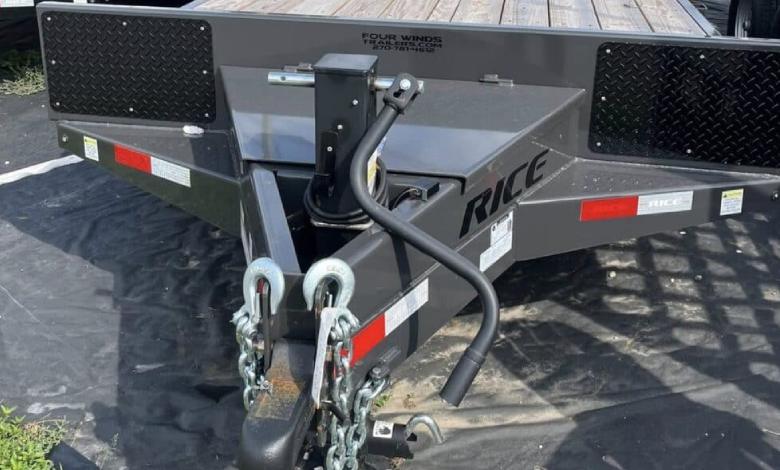
When Trailer Hitch Problems Demand Professional Help
While pre-trip checks can catch many issues, some trailer hitch problems occur while you’re driving, demanding immediate, professional roadside assistance. This is where the heavy-duty experts at Pars Towing come in.
Emergency Recovery and Stabilization
If a catastrophic failure occurs—such as a hitch structural failure, a runaway trailer incident, or a severe, uncontrollable sway that forces you to the shoulder—do not attempt to fix it yourself.
- Hitch Failure: If the coupling separates or a component breaks, you need a heavy wrecker with specialized recovery capabilities to safely secure both your vehicle and the trailer. Our operators are trained to use appropriate winching and lifting techniques to move the damaged rig without causing further harm.
- Accident Response: In the unfortunate event of a collision involving your trailer, Pars Towing has the equipment to handle complex scene recovery, working safely alongside law enforcement and MTO officials to clear the roadway quickly and efficiently in the Aurora area.
- Learn More >>>>trailer laws
On-Site Troubleshooting and Repair
Many electrical and minor structural issues can be addressed right on the shoulder, potentially saving you the cost and delay of a full tow.
- Electrical Diagnosis: Our roadside assistance vehicles carry diagnostic tools and parts to quickly identify and repair common wiring shorts, broken connectors, and faulty trailer light bulbs.
- Brake Controller Reset: For many modern electronic issues, a simple, guided reset or reconnection can resolve the problem, allowing you to resume your journey safely.
- Stuck Component Extraction: We have the tools and expertise to safely free a seized ball mount from a rusty receiver or unlock a stubborn coupler, minimizing the risk of damage to the rest of the hitch assembly.
Safe and Specialized Towing
If the issue is major, such as a severely bent frame component or total structural failure, the trailer must be towed using a specialized vehicle.
- Heavy-Duty Fleet: Our fleet includes heavy-duty wreckers equipped with the high-capacity underlift necessary to safely transport large, disabled trailers and their cargo to a local repair facility in Aurora or your designated location.
- Protecting Your Asset: We understand the high value of RVs and commercial trailers. Our operators take every precaution, from checking all connection points to using proper restraint methods, to ensure your asset arrives in the same condition it was recovered.
Prevention: Your Best Defense Against Trailer Hitch Problems
The most effective strategy against unexpected roadside crises is diligent maintenance and preparation.
| Component | Maintenance Checklist | Why It Matters |
| Hitch & Ball | Clean and grease the ball surface before every tow. Check for rust in the receiver. Ensure all bolts are tightened to manufacturer specifications. | Reduces friction, prevents wear, and ensures a solid, safe connection. |
| Coupler | Check the internal locking mechanism for smooth operation. Inspect the housing for cracks or deformation. Lubricate moving parts. | A loose or damaged coupler is the leading cause of trailer separation accidents. |
| Safety Chains | Inspect chains for wear and rust. Ensure they are crossed beneath the coupler and attached securely to the tow vehicle’s frame. | The only backup system to prevent a runaway trailer. Crossing them cradles the tongue if the coupler fails. |
| Wiring & Brakes | Check all lights (brake, turn, running) before every trip. Inspect the wiring harness for chaffing or exposed wires. Test the manual brake override in the cab. | Guarantees compliance and, critically, ensures you can stop the combined rig. |
| Weight & Load | Verify the trailer load is properly distributed (10-15% tongue weight). Confirm that your hitch and ball are rated above the total gross trailer weight. | Prevents dangerous sway and structural failure of the hitch. |
- Learn More >>>>Can Towing Ruin the Transmission?
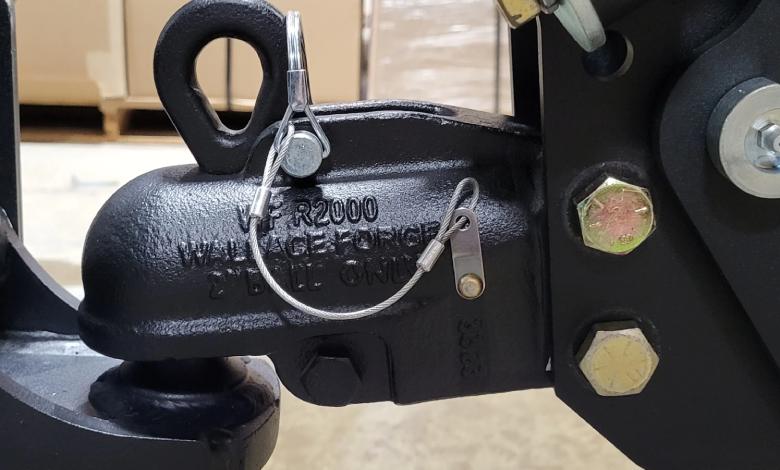
Why Pars Towing is Aurora’s Choice for Trailer Issues
When a trailer hitch problem puts your journey on hold in Aurora or the surrounding regions of Ontario, you need more than just a truck—you need peace of mind.
Pars Towing provides:
- Local Expertise: As a professional service operating right here in the Aurora area, we know the roads and can reach you faster than distant competitors.
- Heavy-Duty Specialists: We don’t just tow cars; our core competence is heavy-duty recovery and transport, giving us the equipment and experience required to handle even the largest commercial or recreational trailers.
- 24/7 Professional Service: Our dispatch and operators are available around the clock, guaranteeing help is on the way the moment you call, regardless of the time or weather.
Don’t let a trailer hitch problem become a disaster. If you encounter a complex issue on the road, trust the experts who prioritize your safety and the integrity of your equipment.
For immediate roadside assistance or heavy-duty towing for your trailer in Aurora and Ontario, call the reliable professionals at Pars Towing today.

